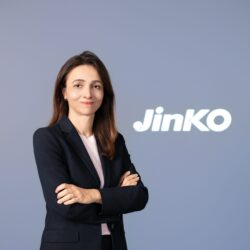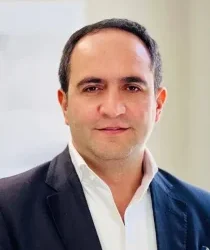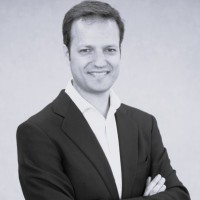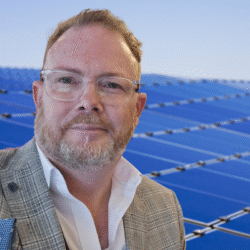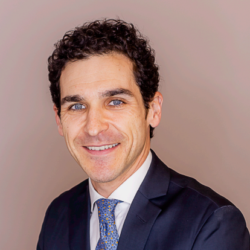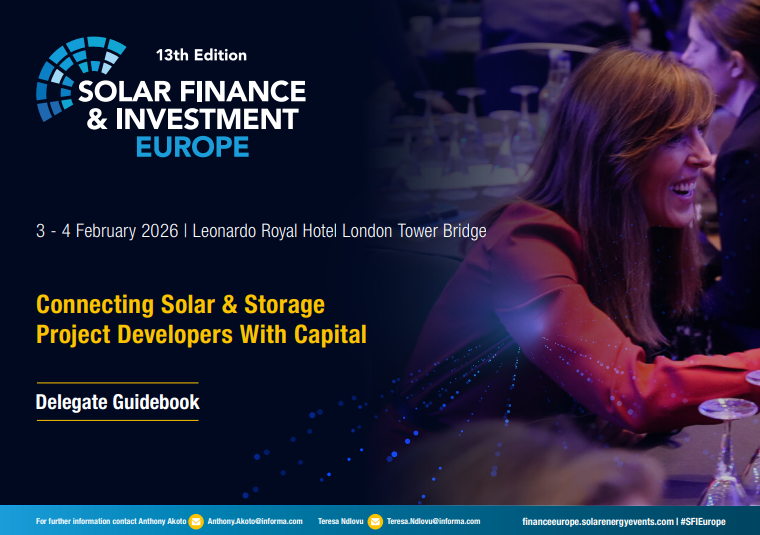Solar Finance & Investment Europe Summit Agenda
Interested in speaking in 2026? Contact Teresa Ndlovu, Senior Conference Producer, to learn more.
Speaker
As US renewable incentives face political uncertainty, European markets are gaining renewed attention from global investors. This session explores the shifting competitive landscape between European and US renewable markets and strategies for European stakeholders to capitalize on this potential advantage.
- Global investor portfolio rebalancing strategies between European markets and weakening IRA-incentivized US opportunities
- Effective approaches for European projects to attract US capital in the current market environment
- Lessons European policymakers can apply from US energy policy structure and implementation over the last decade to drive renewable build out
- Comparative analysis of European versus US regulatory stability and its impact on long-term investment decisions
- Strategic positioning opportunities for European developers in response to changing global capital flows
Moderator
Speakers
- Investment returns currently achievable in European grid infrastructure projects
- Regulatory frameworks across European markets to determine optimal investment opportunities in grid infrastructure
- Effective partnership structures with regulated network operators that facilitate grid expansion while managing risk appropriately
- Innovative financing models that accelerate private investment in transmission infrastructure projects
- ESG considerations into grid modernization investment strategies to meet institutional investor mandates and sustainability goals
Moderator
Speakers
Day 1- Financing, Investment & Secondary Markets
Day 1 - Co-Location, Hybridisation & Portfolio Construction
Day 1- Geopolitics’ Impact on Your Day-to-Day
- How fund managers are shifting from operational assets to development platforms and storage technologies to meet institutional demands for higher returns
- How fund managers are restructuring return propositions to align with institutional expectations amid rising capital costs
- Which European markets fund managers prioritize to attract institutional capital — policy stability, yield, and scalability as selling points
- How fund managers leverage ESG credentials and reporting frameworks to win mandates for newer technologies with limited track records
- How fund managers align with evolving institutional definitions of “core” versus “opportunistic” renewable investments
Moderator
Speakers

- Quantifying merchant risk in renewable energy asset + storage business models with varying degrees of contracted revenues
- Compare revenue stack combinations across different European regulatory environments to identify the most bankable approaches
- How lenders are evolving their financing strategies for co-located storage assets with different revenue streams
- Performance guarantees and warranties required by investors in relation to technology risk in storage valuations
- How advanced battery management systems, cycle life improvements, and augmentation strategies directly impact project IRRs and create competitive advantages in securing premium PPAs and capacity market contracts
Moderator
Speakers
- Using EU policy frameworks to support procurement resilience and shorten project timelines
- Balancing cost, quality, and EU content rules in procurement decisions
- Structuring EPC and OEM contracts to share supply chain disruption risks fairly
- Securing financing terms that reflect supply chain volatility while preserving bankability
- Building contingency plans for component shortages and delivery delays
Moderator
Speakers
- Evaluate optimal revenue stack combinations of CfD, merchant, and PPA exposure to maximize returns while maintaining bankability
- Implement geographical diversification strategies that effectively mitigate market-specific risks
- Apply quantitative methods to assess correlation risks across multiple assets within a portfolio
- Design portfolio-level hedging strategies that provide more efficient risk management than project-level approaches
- Develop robust stress-testing frameworks to evaluate portfolio resilience against various market disruption scenario
- Challenging the assumption of CfDs as iron-clad ‘safe’ revenue streams, considering UK bidding eligibility changes and historical retroactive reforms in markets like Spain
Moderator
Speakers
- Which solar and storage assets and project types are gaining or losing attractiveness in European secondary markets
- Alternative revenue models for projects that can’t secure traditional offtake agreements
- How investors are adjusting discount rates and return expectations across different European markets in the current high-interest rate environment
- Effective earnout structures and contingent pricing mechanisms being used to bridge valuation gaps between buyers and sellers
- How grid connection status is creating valuation disparities between projects with secured connections versus those in the queue
- Regional variations in valuation adjustments across European markets
Moderator
Speakers

Join us for this industry workshop led by Novogrid, where we will discuss:
- Open dialogue with industry experts and peers – Discuss current market dynamics, reforms, and experiences preparing for upcoming grid capacity windows.
- Maximising opportunities in a limited grid capacity window – Identify strategies to position your projects early and secure competitive advantages.
- Readiness, grid fit and revenue risk -Discuss how to assess grid capacity and project viability in your target area before committing capital to secure readiness.

Speaker
Day 1- Financing, Investment & Secondary Markets
Day 1 - Co-Location, Hybridisation & Portfolio Construction
Day 1- Geopolitics’ Impact on Your Day-to-Day
Finding the optimal balance between contracted revenues and merchant exposure is a critical portfolio construction decision. Leading investors will share sophisticated approaches to quantifying, modeling, and managing merchant risk that balance upside potential with downside protection.
- Quantitative approaches to merchant risk assessment across European markets
- Portfolio construction strategies balancing merchant and contracted exposure
- Hedging instruments and strategies for managing merchant risk
- Market-specific approaches to merchant optimization
- Case studies of successful merchant risk management strategies
Moderator
Speakers
- Grid connections: Hybrids as the only way to monetise scarce or capped capacity.
- Revenue certainty: How lenders are actually underwriting multi-tech revenue stacks today (are hybrids really bankable yet, or still priced with a risk premium?).
- Regulatory leadership vs laggards: Which EU markets have created workable hybrid rules, and which still punish multi-tech configurations.
- Technology edge: Adding batteries and hydrogens into your solar project.
- The outlook for M&A: Are hybrids trading at a premium or discount versus standalone portfolios?
Moderator
Speakers
- Engaging with critical infrastructure and national security frameworks to secure regulatory support and investor confidence
- Demonstrating the resilience of distributed renewable assets to governments and investors
- Securing supply chains and ensuring developers can access equipment needed to build out renewable assets
- Cyber security standards fit for the future
- Insurance and risk-transfer tools for political, cyber, and force majeure exposures
Moderator
Speakers
Power Purchase Agreements are evolving rapidly to address market challenges like negative pricing and intermittency. Leading offtakers, developers, and intermediaries will share approaches to allocating negative price risk in PPA structures that remain bankable while protecting both parties.
- Contractual mechanisms for allocating negative price risk
- Pricing structures that account for increasing negative price events
- Volume flexibility approaches that mitigate negative price exposure
- Market-specific PPA innovations addressing local pricing challenges
- Strategies to address Solar’s dramatic value decline from 100% to 50% of wholesale market prices across Europe
- Analysis of the doubling frequency of negative pricing hours and projections through 2027
- Case studies of successfully implemented negative price protection structures
Moderator
Speakers
- Leading retrofit technologies demonstrating strongest performance improvements for aging solar assets
- Evaluation and prioritisation methods for component upgrades to maximize ROI
- Integration of asset life extension strategies into long-term financial models
- How asset owners are justifying reinvestment or repowering amid rising O&M costs and tighter margins
- How component supply, warranty gaps, and procurement constraints are reshaping life-extension strategies
Moderator
Speakers
- Innovative financial structures for aggregating diverse C&I assets
- Standardisation approaches that reduce transaction costs
- Risk assessment methodologies for diverse offtaker portfolios
- Warehouse facilities and securitization models for C&I solar
- Case studies of successful institutional-scale C&I portfolio transactions
Moderator
Speakers
Day 1- Financing, Investment & Secondary Markets
Day 1 - Co-Location, Hybridisation & Portfolio Construction
Day 1- Geopolitics’ Impact on Your Day-to-Day
This session will begin with quick-fire presentations from each capital provider on the equity investment, acquisition and partnership opportunities they’re currently seeking. Capital providers have been selected to cover a range of activities, European markets and investment mandates.
Transaction sizes represented range from £1 million – £3 billion.
Capital providers will then host their own roundtable where delegates can attend to discuss business 1-2-1.
Whether you’re capital raising, seeking project finance, looking to sell projects and portfolios, this will be the best opportunity at the summit for delegates to identify and network with active deal-makers in the European solar and storage space.
Moderators
The University of Manchester secured its renewable energy future through a groundbreaking 10-year Corporate Power Purchase Agreement with Enviromena. This session examines the strategic partnership that connects the university directly to the new Medebridge Solar Farm in Essex, demonstrating how educational institutions can achieve sustainability goals while securing long-term energy cost certainty. Learn about the negotiation process, risk management strategies, and operational benefits of this landmark agreement that sets a new standard for university-corporate renewable energy partnerships.
- How The University of Manchester identified and structured a mutually beneficial long-term CPPA with Enviromena, including due diligence processes and partnership evaluation criteria
- Navigate the complexities of 10-year renewable energy agreements, including price volatility protection, performance guarantees, and regulatory compliance considerations
- Real-world insights into integrating solar farm output with university energy demands, measuring sustainability outcomes, and achieving both environmental and financial objectives
The solar market has gone through a tumultuous 2 years, completely changing its dynamics. Moustafa Ramadan, PhD, will discuss:
- Overview of global manufacturing
- Changing manufacturing dynamics
- The growing importance of bankability
- Forecasts of the solar market
Speaker
As interest rates remain elevated, renewable energy developers are exploring diverse funding sources beyond traditional project finance. This session examines innovative capital structures and emerging funding channels that can help projects move forward despite challenging market conditions.
- Green bonds and sustainability-linked loan structures that effectively reduce financing costs for renewable projects
- Hybrid debt instruments proving most effective in the current interest rate environment
- Direct participation models for institutional investors outside traditional bank structures
- Innovative credit enhancement mechanisms improving financing terms for renewable assets
- Capital stack optimization strategies balancing cost of capital against flexibility and control
- Alternative financing sources for projects facing refinancing challenges due to rate increases
- Strategic approaches to managing interest rate risk through hedging and structured products
- Regional variations in capital availability and how developers can access cross-border funding
Moderator
Speakers
As the day’s discussions draw to a close, unwind and indulge in an evening of relaxed networking at the 2026 Solar Finance and Investment Europe Drinks Reception.
Whether you’re looking to deepen existing relationships or spark new collaborations, the Solar Media Team invite you to mingle with peers, experts, and thought leaders in an informal and convivial environment in the heart of London.
Day 2- Revenue Optimisation and Key EU Renewable Energy Markets
Day 2- Co-Location, Hybridisation & Portfolio Construction
Day 2- Financing, Investment & Secondary Markets
As competition intensifies for government-backed revenue support mechanisms across Europe, sophisticated developers are finding creative ways to maximize returns beyond simply securing contracts. This session explores advanced strategies for optimizing project economics within regulatory frameworks, identifying untapped value opportunities, and building additional revenue layers that complement government-backed schemes.
- Bidding strategies proving most successful in competitive CfD auctions across European markets
- Developer approaches to optimizing project designs specifically for CfD economics versus other revenue models
- Methods for layering additional revenue streams alongside CfDs that remain permissible and profitable
- Investor valuation methodologies for CfD-backed projects compared to corporate PPA or merchant alternatives
- Lessons learned from comparing CfD implementation across different European jurisdictions
Moderator
Speakers
As renewable energy generation grows, grid curtailment wastes valuable clean energy. This session explores how data centres can function as flexible loads that strategically utilize curtailed renewable energy, creating a win-win solution for grid operators, renewable generators, and the digital economy.
- Co-location strategies pairing data centres with renewable generators to utilize curtailed power
- Flexible interconnection models enabling consumption of non-firm power during excess generation
- Case studies of “behind-the-meter” deployments converting wasted renewable energy into computing power
- Making AI workloads adaptable to variable renewable energy availability
- Battery integration enabling data centres to function as virtual power plants
- Economic models quantifying the value of data centre flexibility to grid stakeholders
- Regulatory innovations incentivizing data centres as grid balancing resources
- Strategic siting of data centres in regions with high renewable curtailment rates
Moderator
Speakers
Traditional project finance structures often fail to accommodate the inherent variability of renewable energy generation. This session explores innovative financing approaches that better align debt service with asset performance, examining how developers and lenders are creating more flexible structures that optimize cash flows while maintaining bankability.
- Debt repayment structures being aligned with seasonal generation profiles to optimize cash flows
- Approaches to sculpted amortization accepted by lenders in today’s market
- Structure of cash sweeps and other variable payment mechanisms designed to share upside whilst protecting downside
- Covenant structures that best accommodate the inherent variability in renewable generation
- Impact of different amortization strategies on overall project economics and equity returns
Moderator
Speakers
The massive blackout that struck Spain and Portugal in April 2025 wasn’t just a technical grid failure—it has become a pivotal moment reshaping solar project economics across Europe. As grid operators implement stricter interconnection requirements and lenders reassess project risk profiles, solar developers face a transformed landscape. This session brings together financial institutions, developers, and technical experts to explore how the industry is adapting to new realities where grid stability capabilities directly impact project bankability and returns.
- Emerging lender requirements for grid-supportive capabilities in solar projects and their impact on financing terms
- How technical due diligence processes are evolving to assess grid stability contributions and compliance risks
- The shifting economics of solar+storage versus standalone solar as grid services become revenue opportunities
- Strategic approaches to site selection and interconnection planning in capacity-constrained grids
- Developer experiences navigating new grid code requirements and compliance timelines
- Investment implications of regulatory responses to the blackout across European markets
- Competitive advantages for developers who proactively address grid stability in their business models
Moderator
Speakers
As artificial intelligence and machine learning technologies mature, they’re revolutionizing how renewable energy assets are monitored, maintained, and optimized. This session explores cutting-edge applications of AI in asset management, examining real-world implementation challenges, quantifiable benefits, and strategies for maximizing returns on digital investments.
- Machine learning algorithms improving fault detection and performance optimization in solar portfolios
- Predictive maintenance approaches demonstrating the strongest financial returns
- Digital twin technologies enabling scenario testing and optimization across diverse asset portfolios
- Data integration challenges when implementing advanced analytics across multi-vendor, multi-technology portfolios
Moderator
Speakers
As energy markets experience unprecedented volatility, traditional PPA structures are proving inadequate for both generators and offtakers. This session examines emerging contract innovations that better distribute risks, enhance flexibility, and create sustainable value for all parties in rapidly evolving market conditions.
- Corporate PPAs evolving to address basis risk and intermittency challenges
- Aggregation models successfully bringing smaller offtakers into the renewable PPA market
- Intermediary PPA structures changing the risk allocation between generators and end-users
- Pricing mechanisms proving most effective in volatile energy market conditions
- Evolution of term lengths and volume commitments to meet both generator and offtaker needs
Moderator
Speakers
Day 2- Revenue Optimisation and Key EU Renewable Energy Markets
Day 2- Co-Location, Hybridisation & Portfolio Construction
Day 2- Financing, Investment & Secondary Markets
There will be seven interactive roundtables taking place simultaneously – with each roundtable focused on a specific country or region covered on the programme. Each roundtable will be moderated by a developer and/or investor with high exposure to the respective market providing first-hand insights.
Each roundtable will explore the roadblocks and opportunities for investment and deployment of PV.
Each roundtable will focus on one of the following countries or regions:
- The United Kingdom
- Italy
- Romania
- France
- Germany
- Turkey
- Iberia (Spain & Portugal)
This is the best opportunity at the summit for delegates to identify and network with project sponsors and capital providers either already active or seeking entry into specific European solar markets.
Moderators

The UK’s grid connection reform introduces a new “Gate 2” process that fundamentally changes how renewable projects secure and maintain grid access. This session explores the strategic implications of these reforms for developers and investors, examining both the challenges and opportunities presented by this significant regulatory shift.
- Strategic approaches to meeting the dual Gate 2 criteria of “readiness” and “strategic alignment” to secure firm connection offers
- Navigating the transition period as existing projects are reassessed through the G2WQ process
- Investment implications of the new queue prioritization system that favours projects aligned with the Clean Power 2030 Action Plan
- Practical strategies for developers to demonstrate project readiness and maintain queue position
- Geographic and technological considerations affecting strategic alignment assessments
- Risk mitigation approaches for projects facing potential connection date changes or point of connection modifications
- Competitive advantages available to projects with 2026/2027 connection dates under the protection clauses
- Data-driven approaches to tracking queue progression and optimizing development timelines in the reformed system
- Methods for asset managers to quantify the ROI of investments in AI and advanced monitoring systems
Moderator

Speakers
As European renewable energy policies continue to diverge at the national level, investors face increasing complexity in building and managing cross-border portfolios. This session explores effective strategies for navigating regulatory fragmentation, mitigating concentration risk, and building resilience into multi-market investment approaches.
- Adaptation strategies used by pan-European investors to account for diverging national regulatory frameworks
- Effective approaches for monitoring and anticipating regulatory changes across multiple jurisdictions
- Portfolio structuring techniques to mitigate concentration risk in any single regulatory regime
- European markets currently offering the most stable and predictable regulatory environments for long-term investment
- Methods developers use to build flexibility into project designs to accommodate potential future regulatory changes
Moderator
Speakers
As the solar sector matures and decarbonization targets intensify, 2026 is poised to usher in a significant surge in merger and acquisition activity. This session examines the key drivers behind this anticipated consolidation wave, strategic considerations for industry participants, and how companies can position themselves to capitalize on—or defend against—this transformative trend.
- Decarbonization imperatives creating unprecedented demand across the solar value chain, from manufacturing to project development
- How government renewable targets and policy frameworks are reshaping the competitive landscape and creating M&A opportunities
- Strategic consolidation patterns emerging as companies pursue scale economies and technological differentiation
- Overcoming board-level resistance to strategic pivots in response to market fundamentals
- Addressing the exits crisis and strategies for companies unable to find buyers
- Supply chain security concerns accelerating vertical integration and reshoring-focused transactions
- Valuation methodologies evolving to account for policy uncertainty and tariff risks in cross-border deals
- Due diligence approaches specifically tailored to solar industry transactions in a volatile regulatory environment
- Strategies for smaller innovators to position for acquisition or navigate an increasingly consolidated marketplace
Moderator
Speakers
As Europe’s renewable energy transition accelerates, grid capacity constraints have emerged as a critical bottleneck. This session explores innovative technical, commercial, and regulatory approaches being deployed across European markets to maximize existing infrastructure, prioritize viable projects, and accelerate the connection of new renewable capacity.
- Connection queue management strategies across different European markets
- Innovative technical solutions enabling greater capacity utilization of existing grid infrastructure
- Structuring of shared connection models and private wire arrangements to overcome constraints
- Effective grid reinforcement cost sharing approaches accelerating new connections
- Developer adaptations in site selection and project design to accommodate grid limitations
Moderator
Speakers
As electrification accelerates across multiple sectors and energy-intensive industries expand, understanding future demand patterns becomes critical for strategic investment decisions. This session explores emerging trends reshaping energy demand horizons and examines how developers, investors, and corporate buyers can position themselves to capitalize on these shifts through 2027.
- Emerging electrification trends across transport, heating, and industrial processes reshaping energy demand forecasts
- Addressing the mismatch between peak solar production and peak energy demand periods
- Data-driven approaches used by leading investors to identify high-growth demand centres requiring accelerated renewable deployment
- Strategic adjustments in site selection and project design to align with projected demand shifts and grid capacity evolution
- The impact of energy-intensive industries in creating new demand hotspots and opportunities for renewable developers
- Corporate sustainability commitments and regulatory pressures influencing energy procurement strategies and project development pipelines
- Forecasting negative pricing frequency in 2026-2027 and mitigation strategies
